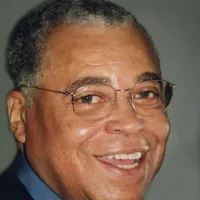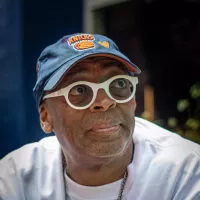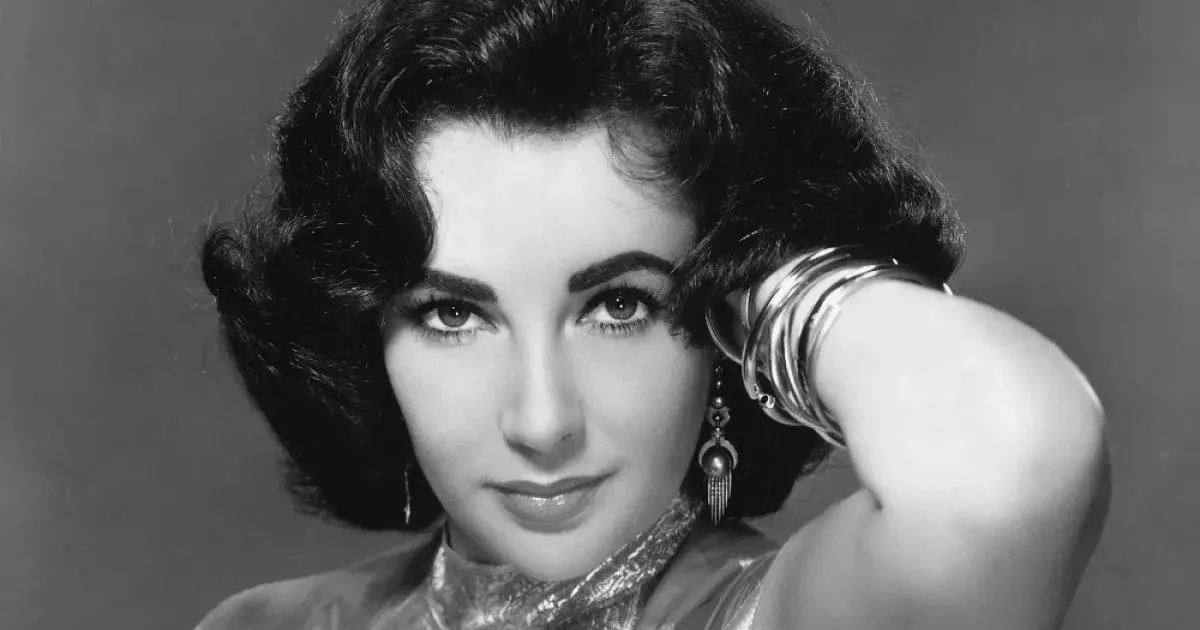From career breakthroughs to professional milestones, explore how Elizabeth Taylor made an impact.
Elizabeth Taylor was a celebrated British-American actress who rose to fame as a child star during the Golden Age of Hollywood. She became one of the most popular and highest-paid actresses in the 1950s and 1960s, remaining a prominent public figure throughout her life. Recognized for her beauty and acting talent, the American Film Institute ranked her among the greatest female screen legends.
1937: MGM Search for Actress for National Velvet
Since 1937, MGM had been searching for a suitable actress with a British accent and the ability to ride horses for the movie "National Velvet".
April 1941: Beginning of Universal Contract
In April 1941, Elizabeth Taylor began her contract with Universal and was cast in a small role in "There's One Born Every Minute".
1941: Auditioning for Universal Pictures and MGM
In early 1941, Elizabeth Taylor auditioned for both Universal Pictures and Metro-Goldwyn-Mayer, and Sara Taylor accepted Universal's offer.
1942: Acting Debut
In 1942, Elizabeth Taylor made her acting debut with a minor role in the Universal Pictures film "There's One Born Every Minute", but her contract was terminated after a year.
1942: Termination of Universal Contract
In 1942, Elizabeth Taylor's contract with Universal was terminated after a year due to the casting director's dislike of her.
1942: Audition for Lassie Come Home
In late 1942, Elizabeth Taylor auditioned for a minor role in "Lassie Come Home", arranged by MGM producer Samuel Marx.
January 1943: MGM Contract
In January 1943, after a three-month trial contract, Elizabeth Taylor was given a standard seven-year contract with MGM.
1944: Release of National Velvet
In 1944, "National Velvet" was released on Christmas and became a box-office success, with Elizabeth Taylor receiving praise for her performance.
1944: Appearance in The White Cliffs of Dover
In 1944, Elizabeth Taylor appeared in minor uncredited roles in "The White Cliffs of Dover" .
1944: Popular Teen Star
In 1944, Elizabeth Taylor became a popular teen star after appearing in "National Velvet" under contract with Metro-Goldwyn-Mayer.
1946: MGM Gives Taylor New Seven-Year Contract
In 1946, following the success of "National Velvet", MGM gave Elizabeth Taylor a new seven-year contract with a weekly salary of $750 and cast her in "Courage of Lassie".
1947: Cultivating a Mature Public Image
In 1947, when Elizabeth Taylor turned 15, MGM began to cultivate a more mature public image for her. She starred in the critically panned "Cynthia" and the period film "Life with Father".
1948: Roles in A Date with Judy and Julia Misbehaves
In 1948, Elizabeth Taylor had supporting roles in "A Date with Judy" and "Julia Misbehaves", the latter being a commercial success.
1949: Filming of Conspirator
In 1949, Elizabeth Taylor filmed "Conspirator", where she plays a woman who begins to suspect that her husband is a Soviet spy.
1949: Starring in Little Women
In 1949, Elizabeth Taylor's last adolescent role was as Amy March in "Little Women", a box-office success and was featured on the cover of Time.
March 1950: Release of Conspirator
In March 1950, "Conspirator" was released, marking Elizabeth Taylor's transition to adult roles.
1950: Starring in 'Father of the Bride'
In 1950, Elizabeth Taylor starred in the comedy "Father of the Bride", marking her transition to more mature roles.
1951: Critical Acclaim for 'A Place in the Sun'
In 1951, Elizabeth Taylor received critical acclaim for her performance in the drama "A Place in the Sun".
1951: A Place in the Sun Release and Marriage Scandal
In 1951, Elizabeth Taylor starred in "A Place in the Sun", marking a significant departure from her earlier roles and earning her critical acclaim. Also in January 1951, her divorce from Hilton after only eight months of marriage caused a public scandal.
1951: A Place in the Sun
In 1951, Elizabeth Taylor wore a white ball gown in A Place in the Sun, one of her most famous costumes.
1951: Release of Father's Little Dividend
In 1951, the successful sequel, "Father's Little Dividend" was released ten months after the release of "Father of the Bride".
1952: Starring in Ivanhoe
In 1952, Elizabeth Taylor starred in the historical adventure epic "Ivanhoe" alongside Robert Taylor and Joan Fontaine.
1952: Starring in Love Is Better Than Ever and Ivanhoe
In 1952, Elizabeth Taylor starred in the romantic comedy "Love Is Better Than Ever". She also participated in the historical epic "Ivanhoe", which became one of MGM's biggest commercial successes.
1952: Signing a New Contract with MGM
In the summer of 1952, Elizabeth Taylor signed a new seven-year contract with MGM, influenced by her marriage to Michael Wilding and her pregnancy. This granted her a weekly salary of $4,700, and included a loan for a house and a contract for her husband.
1953: The Girl Who Had Everything release
In 1953, Elizabeth Taylor's last film made under her old contract with MGM, "The Girl Who Had Everything," was released. This was a remake of the pre-code drama "A Free Soul."
1954: Release of Rhapsody and Elephant Walk
In early 1954, Elizabeth Taylor's first two films under her new contract were released ten days apart. These included "Rhapsody", a romantic film, and "Elephant Walk", a drama where she played a British woman on a Ceylon tea plantation.
1954: Releases of Beau Brummell and The Last Time I Saw Paris
In the fall of 1954, Elizabeth Taylor starred in two more film releases, "Beau Brummell", which she disliked, and "The Last Time I Saw Paris", which she liked. She also became pregnant again during production.
1956: Starring in Giant
In 1956, Elizabeth Taylor began receiving more enjoyable roles, beginning with the epic drama "Giant".
1957: Starring in Raintree County
In 1957, Elizabeth Taylor starred alongside Montgomery Clift in "Raintree County", a Civil War drama. Taylor was nominated for an Academy Award for Best Actress for her performance in the film.
March 1958: Death of Mike Todd and Filming Cat on a Hot Tin Roof
In March 1958, Elizabeth Taylor was filming "Cat on a Hot Tin Roof" when her husband, Mike Todd, died in a plane crash. Despite her devastation, she returned to work only three weeks later.
1958: Starring in Cat on a Hot Tin Roof
In 1958, Elizabeth Taylor starred in "Cat on a Hot Tin Roof", a film adaptation of a play by Tennessee Williams.
1959: Preparing for Butterfield 8
In 1959, Elizabeth Taylor owed one more film for MGM, which decided should be BUtterfield 8. She hated the film but had no choice in the matter.
1959: Purchase of Israeli bonds
In 1959, Elizabeth Taylor purchased $100,000 worth of Israeli bonds, leading to her films being banned by Arab countries.
1959: Starring in Suddenly, Last Summer
In 1959, Elizabeth Taylor starred in "Suddenly, Last Summer", another Tennessee Williams adaptation. She earned $500,000 for her role and received her third Academy Award nomination and first Golden Globe for Best Actress.
1959: Golden Globe for Suddenly, Last Summer
In 1959, Elizabeth Taylor won a Golden Globe for Best Actress for her performance in "Suddenly, Last Summer", a film adaptation of a play by Tennessee Williams.
1959: Suddenly Last Summer
In 1959, Elizabeth Taylor wore a green A-line dress in Suddenly Last Summer, one of her most famous costumes.
1960: Release of BUtterfield 8
In 1960, Elizabeth Taylor starred in "BUtterfield 8", fulfilling her MGM contract. She won her first Academy Award for Best Actress for her performance in the film.
1960: Academy Award for BUtterfield 8
In 1960, Elizabeth Taylor won the Academy Award for Best Actress for her performance in "BUtterfield 8", her last film for MGM.
July 1962: Completion of Cleopatra Filming
In July 1962, filming for "Cleopatra" was finally completed in Rome after numerous delays and changes in director and cast.
1963: Cleopatra's Box Office Success and Mixed Reviews
In 1963, "Cleopatra" became the biggest box-office success in the United States, grossing $15.7 million. However, it received mixed to negative reviews and took years to earn back its production costs.
1963: Release of Cleopatra
In 1963, Elizabeth Taylor starred in "Cleopatra", becoming the first movie star to be paid $1 million for a role. The film's production was plagued by delays and a scandal involving her affair with Richard Burton.
1963: Starring in The V.I.P.s and Elizabeth Taylor in London
In 1963, Elizabeth Taylor starred in "The V.I.P.s" with Richard Burton, which mirrored the headlines about their affair. She also appeared in a CBS television special, "Elizabeth Taylor in London."
1963: Starring in The V.I.P.s with Richard Burton
In 1963, Elizabeth Taylor starred in "The V.I.P.s" with Richard Burton.
1963: Cleopatra and "cat-eye" makeup trend
In 1963, Elizabeth Taylor's look in Cleopatra started a trend for "cat-eye" makeup done with black eyeliner.
1964: Failed Negotiations for What a Way to Go!
In 1964, Elizabeth Taylor intended to star in "What a Way to Go!", but negotiations fell through and Shirley MacLaine was cast instead.
1965: Starring in The Sandpiper
In 1965, Elizabeth Taylor starred in "The Sandpiper" with Richard Burton, about an illicit love affair. While reviews were negative, it grossed a successful $14 million.
1965: Starring in The Sandpiper with Richard Burton
In 1965, Elizabeth Taylor starred in "The Sandpiper" with Richard Burton.
1966: Doctor Faustus performance
In 1966, Elizabeth Taylor and Richard Burton performed "Doctor Faustus" for a week in Oxford to benefit the Oxford University Dramatic Society. Burton starred, and Taylor made her stage debut as Helen of Troy, a non-speaking role.
1966: Critical Acclaim for Who's Afraid of Virginia Woolf?
In 1966, Elizabeth Taylor received the best reviews of her career for "Who's Afraid of Virginia Woolf?", winning her second Academy Award.
1966: Who's Afraid of Virginia Woolf? release
In 1966, Elizabeth Taylor starred in "Who's Afraid of Virginia Woolf?", an adaptation of Edward Albee's play. Her performance as Martha, a middle-aged woman in a troubled marriage, was critically acclaimed, earning her a second Academy Award. The film was also a commercial success.
1967: Doctor Faustus and The Taming of the Shrew Release
In 1967, Elizabeth Taylor appeared in the film adaptation of "Doctor Faustus", which was critically panned and commercially unsuccessful. She also co-produced and starred in Franco Zeffirelli's "The Taming of the Shrew" with Burton, which proved to be more successful at the box office.
1967: Release of Reflections in a Golden Eye and The Comedians
In 1967, Elizabeth Taylor starred in "Reflections in a Golden Eye" without Richard Burton, which was a critical and commercial failure. She also appeared in "The Comedians", which received mixed reviews and was a box-office disappointment.
1967: Starring in The Taming of the Shrew with Richard Burton
In 1967, Elizabeth Taylor starred in "The Taming of the Shrew" with Richard Burton.
1968: Starring in Boom! and Secret Ceremony
In 1968, Elizabeth Taylor starred in two films directed by Joseph Losey: "Boom!" and "Secret Ceremony." Both films were critical and commercial failures, marking a decline in her career.
1970: Release of The Only Game in Town
In 1970, Elizabeth Taylor starred in "The Only Game in Town" alongside Warren Beatty. However, the film was unsuccessful, contributing to the decline in her career.
1972: Releases and Awards in 1972
In 1972, Elizabeth Taylor starred in "X Y & Zee," winning the David di Donatello for Best Foreign Actress. She also appeared in "Under Milk Wood" and "Hammersmith Is Out," winning the Silver Bear for Best Actress at the Berlin Film Festival for the latter.
1973: Divorce His, Divorce Hers Release and Other Films
In 1973, Elizabeth Taylor's last film with Richard Burton, "Divorce His, Divorce Hers", was released. Additionally, she starred in "Night Watch" and "Ash Wednesday", receiving a Golden Globe nomination for the latter.
1974: Release of The Driver's Seat
In 1974, Elizabeth Taylor starred in "The Driver's Seat", an Italian film adaptation of Muriel Spark's novel. The film was a failure.
1975: Protest against UN resolution
In 1975, Elizabeth Taylor signed a letter protesting the United Nations General Assembly Resolution 3379, which she felt was unfair to Israel.
1976: Offer to replace hostages in Entebbe skyjacking
In 1976, Elizabeth Taylor offered herself as a replacement hostage after more than 100 Israeli civilians were taken hostage in the Entebbe skyjacking.
1976: Participation in The Blue Bird and Victory at Entebbe
In 1976, Elizabeth Taylor participated in the Soviet-American fantasy film "The Blue Bird," which was a critical and box-office failure. She also had a small role in the television film "Victory at Entebbe."
1977: Singing in A Little Night Music
In 1977, Elizabeth Taylor sang in the film adaptation of Stephen Sondheim's musical "A Little Night Music", which was critically panned.
1980: Starring in The Mirror Crack'd and The Little Foxes
In 1980, Elizabeth Taylor starred in "The Mirror Crack'd", adapted from an Agatha Christie novel. She also took on her first substantial stage role, playing Regina Giddens in a Broadway production of Lillian Hellman's "The Little Foxes".
May 1981: Premiere of The Little Foxes on Broadway
In May 1981, Elizabeth Taylor's Broadway production of "The Little Foxes" premiered. Despite mixed reviews, the show had a sold-out six-month run.
November 1981: Appearance on General Hospital
In November 1981, Elizabeth Taylor appeared as evil socialite Helena Cassadine on the daytime soap opera "General Hospital".
1981: Narration of 'Genocide'
In 1981, Elizabeth Taylor narrated Genocide, an Academy Award-winning documentary about the Holocaust.
1983: Founding and Dissolution of the Elizabeth Taylor Repertory Company
In early 1983, Elizabeth Taylor and producer Zev Buffman founded the Elizabeth Taylor Repertory Company. The company's first and only production was a revival of Noël Coward's comedy "Private Lives", starring Taylor and Burton. The production received generally negative reviews, and Taylor dissolved her theatre company after its failure. She also appeared in the television film "Between Friends" that year.
1984: Philanthropic Efforts Begin
In 1984, Elizabeth Taylor began her philanthropic efforts by helping to organize and hosting the first AIDS fundraiser to benefit the AIDS Project Los Angeles.
1984: Cameos in Hotel and All My Children
In 1984, Elizabeth Taylor made cameo appearances in the soap operas "Hotel" and "All My Children".
August 1985: Founding of the National AIDS Research Foundation
In August 1985, Elizabeth Taylor and Michael Gottlieb founded the National AIDS Research Foundation after Rock Hudson announced he was dying of the disease. The foundation later merged with Mathilde Krim's AIDS foundation to form amfAR.
1985: Co-founded American Foundation for AIDS Research
In 1985, Elizabeth Taylor co-founded the American Foundation for AIDS Research.
1985: Role in North and South and Malice in Wonderland
In 1985, Elizabeth Taylor played a brothel keeper in the historical mini-series "North and South" and starred as gossip columnist Louella Parsons in the television film "Malice in Wonderland". She also received the Cecil B. DeMille Award.
1986: Starring in There Must Be a Pony and Chaplin Award
In 1986, Elizabeth Taylor starred in the television drama "There Must Be a Pony" as a fading movie star. She also received the Film Society of Lincoln Center's Chaplin Award.
1986: Testimony for the Ryan White Care Act
In 1986, Elizabeth Taylor testified before the Senate and House for the Ryan White Care Act, advocating for funding and support for HIV/AIDS care.
1987: Passion perfume launch
In 1987, Elizabeth Taylor launched her first celebrity perfume, Passion, in collaboration with Elizabeth Arden, Inc.
1987: Persuading President Reagan to Acknowledge AIDS
In 1987, Elizabeth Taylor persuaded President Ronald Reagan to acknowledge the AIDS epidemic for the first time in a speech.
1987: Starring in Poker Alice
In 1987, Elizabeth Taylor starred in the Western television film "Poker Alice", playing a character based on the real-life Poker Alice.
1987: Knight of the French Legion of Honour
In 1987, Elizabeth Taylor was made a Knight of the French Legion of Honour in recognition of her philanthropic endeavors.
1988: Appearance in Young Toscanini
In 1988, Elizabeth Taylor reunited with director Franco Zeffirelli to appear in his French-Italian biopic "Young Toscanini".
1989: Starring Role in Sweet Bird of Youth
In 1989, Elizabeth Taylor had the last starring role of her career in a television adaptation of Tennessee Williams' "Sweet Bird of Youth".
1990: Testimony for the Ryan White Care Act
In 1990, Elizabeth Taylor continued her advocacy by testifying again before the Senate and House for the Ryan White Care Act.
1991: Founding of the Elizabeth Taylor AIDS Foundation
In 1991, Elizabeth Taylor founded the Elizabeth Taylor AIDS Foundation (ETAF) to raise awareness and provide support services for people with HIV/AIDS, paying for its overhead costs herself.
1992: Testimony for the Ryan White Care Act
In 1992, Elizabeth Taylor made her final testimony before the Senate and House for the Ryan White Care Act.
1992: Characters in Captain Planet and The Planeteers and The Simpsons
In 1992, Elizabeth Taylor voiced characters in the animated series "Captain Planet and the Planeteers" and "The Simpsons".
1993: Character in The Simpsons
In 1993, Elizabeth Taylor continued to voice characters in The Simpsons.
1993: AFI Life Achievement Award
In 1993, Elizabeth Taylor received the AFI Life Achievement Award for her career.
1994: Release of The Flintstones
In 1994, Elizabeth Taylor played Pearl Slaghoople in "The Flintstones", her last theatrically released film. While critically panned, the film was commercially successful.
February 26, 1996: Guest Appearances to Promote New Fragrance
On February 26, 1996, Elizabeth Taylor made cameo appearances in four CBS series-"The Nanny", "Can't Hurry Love", "Murphy Brown", and "High Society" - to promote her new fragrance.
1997: Lifetime of Glamour Award
In 1997, Elizabeth Taylor received a Lifetime of Glamour Award from the Council of Fashion Designers of America (CFDA).
1997: Screen Actors Guild Honorary Award
In 1997, Elizabeth Taylor received the Screen Actors Guild honorary award.
1999: BAFTA Fellowship
In 1999, Elizabeth Taylor received a BAFTA Fellowship.
2001: Supporting Roles in These Old Broads and God, the Devil and Bob
In 2001, Elizabeth Taylor played supporting roles in the television film "These Old Broads" and the animated sitcom "God, the Devil and Bob". She subsequently announced her retirement from acting.
2001: Received the Presidential Citizens Medal
In 2001, Elizabeth Taylor received the Presidential Citizens Medal for her philanthropic work.
2002: Publication of 'My Love Affair with Jewelry'
In 2002, Elizabeth Taylor published a book about her jewelry collection titled 'My Love Affair with Jewelry'.
2005: House of Taylor founded
In 2005, Elizabeth Taylor founded the jewelry company House of Taylor in collaboration with Kathy Ireland and Jack and Monty Abramov.
2007: Last Public Performance
In 2007, Elizabeth Taylor gave her last public performance in the play "Love Letters" with James Earl Jones at an AIDS benefit at Paramount Studios.
Mentioned in this timeline

Michael Joseph Jackson the King of Pop was a highly...

Elizabeth II reigned as Queen of the United Kingdom and...

Kim Kardashian is an American media personality socialite and businesswoman...
CBS Broadcasting Inc CBS is a prominent American commercial broadcast...

Ash Wednesday is a significant holy day in Western Christianity...

James Earl Jones is a highly acclaimed American actor considered...
Trending

35 minutes ago Chelsea Gray Defeats Paige Bueckers in Unrivaled Tournament; Bueckers Reacts to Loss

36 minutes ago Jalen Brunson Praises Knicks Fan Favorite After Trade Deadline Acquisitions

36 minutes ago Shapovalov Advances to Dallas Open Semifinals, Shelton Match Predicted.

37 minutes ago Spike Lee celebrates 'School Daze' 38th anniversary with Atlanta reunion reflection.
Allisha Gray is an American professional basketball player currently playing for the Atlanta Dream in the WNBA She is most...

2 hours ago Devin Booker embraces Mexican roots, shines with Dillon Brooks, All-Star awaits.
Popular

Kid Rock born Robert James Ritchie is an American musician...

Pam Bondi is an American attorney lobbyist and politician currently...
The Winter Olympic Games a major international multi-sport event held...
Randall Adam Fine is an American politician a Republican who...

Barack Obama the th U S President - was the...

XXXTentacion born Jahseh Dwayne Ricardo Onfroy was a controversial yet...


